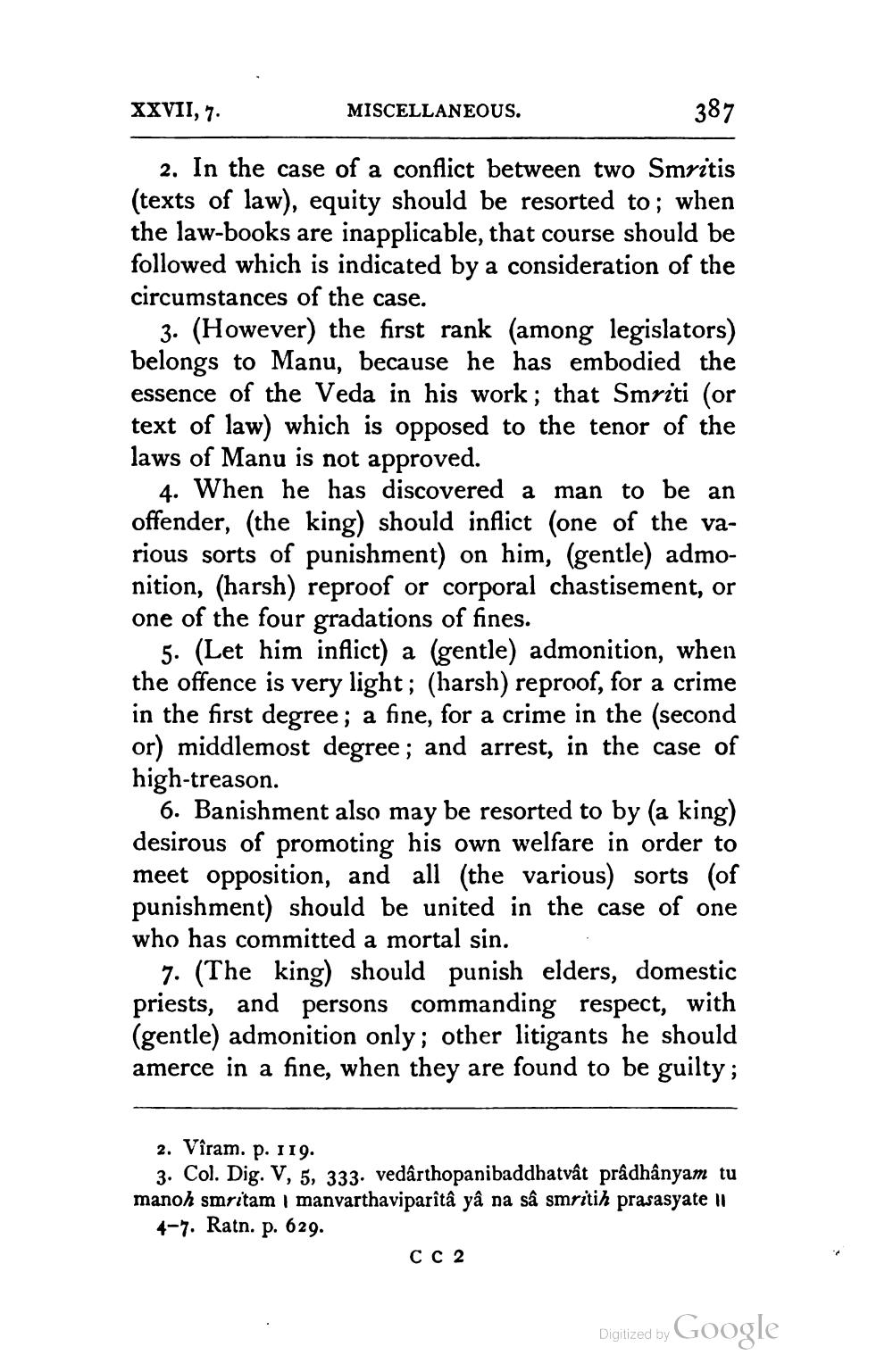________________
XXVII, 7.
MISCELLANEOUS
387
2. In the case of a conflict between two Smritis (texts of law), equity should be resorted to; when the law-books are inapplicable, that course should be followed which is indicated by a consideration of the circumstances of the case.
3. (However) the first rank (among legislators) belongs to Manu, because he has embodied the essence of the Veda in his work; that Smriti (or text of law) which is opposed to the tenor of the laws of Manu is not approved.
4. When he has discovered a man to be an offender, (the king) should inflict (one of the various sorts of punishment) on him, (gentle) admonition, (harsh) reproof or corporal chastisement, or one of the four gradations of fines.
5. (Let him inflict) a (gentle) admonition, when the offence is very light; (harsh) reproof, for a crime in the first degree; a fine, for a crime in the (second or) middlemost degree; and arrest, in the case of high-treason.
6. Banishment also may be resorted to by (a king) desirous of promoting his own welfare in order to meet opposition, and all (the various) sorts of punishment) should be united in the case of one who has committed a mortal sin. .
7. (The king) should punish elders, domestic priests, and persons commanding respect, with (gentle) admonition only; other litigants he should amerce in a fine, when they are found to be guilty;
2. Vîram. p. 119.
3. Col. Dig. V, 5, 333. vedârthopanibaddhatvât pradhânyam tu manoh smritam | manvarthaviparîtâ yâ na så smritih prasasyate 11 4-7. Ratn. p. 629.
CC 2
Digitized by Google




